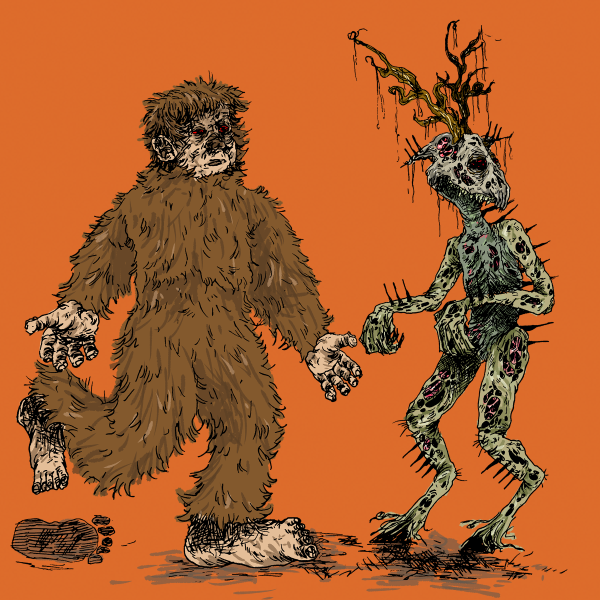On Record: “Take the Sadness Out of Saturday Night” review
August 23, 2021
There’s no denying Jack Antonoff’s strong influence on the music industry. The former guitarist for indie rock band Fun has produced music for icons like Taylor Swift, Lorde, The Chicks, Lana Del Rey and Carly Rae Jepsen, to name a few. Antonoff’s solo indie project, Bleachers, is behind alternative hits “I Wanna Get Better,” “Rollercoaster” and “Don’t Take The Money.”
On July 31, Antonoff released his third Bleachers album, “Take the Sadness Out of Saturday Night.” The ten-track album features collaborations with rock star Bruce Springsteen and indie artist Lana Del Ray. “Take the Sadness Out of Saturday Night” is entwined with cohesive heartbreaking nostalgia and reflections on mental health.
Opening track “91” is an orchestral-backed staccato piece diving headfirst into Antonoff’s reminiscence for his family. Co-written by author Zadie Smith, the haunting ballad submerges listeners into Antonoff’s 1991 New Jersey home, where his mother “waltzes with ghosts.” Antonoff sings that “she’s here, but she’s not,” implying that she is lost in nostalgia and haunted by her past. As the song progresses, Antonoff admits that “just like her, I’m not home.” This vulnerable confession paves the way for the rest of the album, where Antonoff takes listeners on a journey through his memories of adolescence.
“Chinatown,” featuring Bruce Springsteen, is about new love. The song is filled with 80s-style synth sounds, making listeners feel like they are in a coming-of-age film. Last year, Antonoff released “Chinatown” as the second single off the album. Following the record’s reminiscent theme, the collaboration with Springsteen is a nod to Antanoff’s upbringing. Both artists are New Jersey natives, and Antonoff cites Springsteen as one of his biggest musical influences from a young age.
“How Dare You Want More” is an infectious, upbeat pop anthem with a thought-provoking message. In an Instagram post, Antonoff explained that the song is about humanity’s constant desire for more, whether that be wanting more success in one’s career, attaining more material possessions, having more friends or even bettering one’s mental wellness. In the same post, Antonoff asks the question: “How difficult is it to strive for more when you’re not sure if you even deserve it?” The song, which Antonoff released as the album’s fourth single, is high-energy, with popping drum beats in addition to guitar and saxophone solos that compliment each other perfectly.
“Big Life” follows the theme of the previous song, with Antonoff singing about desiring the biggest, most extravagant lifestyle possible. The song features a catchy guitar riff but relies heavily on slapback echo, taking away from the overall listening experience. The piece is somewhat all over the place, but the untamed instrumentation and vocals contribute to the overall idea of the song: Antanoff’s climb up the ladder of success is chaotic and uncertain, but he’s in it with all his heart.
Antonoff slows the album down with “Secret Life” featuring Lana Del Rey. The tranquil song opens with light acoustic guitar strums and uses soft instrumentation to tell a story of secret lovers. In this serene song, Antonoff sings that he wants “a secret life, where you and I can get bored out of our minds.” Antonoff wants to escape the chaos of day-to-day life and be with his love in their “secret life.” The fifth single off the album, this song uses languid, dreamy guitars, Del Rey’s soft vocals and an unhurried feel to form a picture of slow-burn romance.
“Stop Making This Hurt” is a high-energy pop number addressing a complicated subject. In this third single off the album, Antonoff sings about struggling to let go of negative baggage in life. The song advises listeners to “say good-bye like you mean it” to pessimistic thoughts and objects instead of continuing to carry their weight. This memorable and euphonious track is the kind of song one could blast on a sunny day at Sanford Mall or dance to alone in their bedroom.
Continuing to reflect on the weight of depression, “Don’t Go Dark” is a catchy but heartbreaking tune co-written by Lana Del Rey. Throughout the song, he urges a loved one to “do what you want, just don’t go dark on me.” Antonoff paints a picture of watching someone struggle with depressive thoughts, and although he wants to save them, nothing he does seems to be enough. This track features a memorable, infectious melody to relay a moving, emotional message.
The eighth song on the track “45” is a fast-paced acoustic ballad that seems to follow the perspective of Antonoff’s fragile subject in “Don’t Go Dark.” In this emotional piece, he sings, “I’m torn into two pieces, one who wants you and one who’s gone dark.” The subject confesses their struggles with love but ends the song with this promise: “I’m still on your side.”
“Strange Behavior” opens with light guitar strumming and an orchestral background. The soft ballad depicts a person who feels broken by hopeless pursuits. Antonoff sings, “You’ve been chasing shadows. That’s why you wake up in two.” In this harmonious, relaxed track, Antonoff says he’s haunted by a “lonely ghost,” playing into the album’s theme of nostalgia and reflecting on the past.
The somber closing track, “What’d I Do With All This Faith?” incorporates light guitar strumming and saxophone to create a ballad about feeling hopeless and broken. This is the perfect closing track for the album because it takes listeners back through Antonoff’s emotional nostalgia and reminds them of his struggles with relationships. We are left with this gut-wrenching closing line about a departed loved one in Antonoff’s life: “Ain’t no faith can take your place.”
“Take the Sadness Out of Saturday Night” is a journey through Antonoff’s past and serves as a catalyst for conversations about mental health. Antoff’s most recent project tells a compelling and cohesive, track-by-track story about Antonoff’s childhood, love life and mental health struggles. Making catchy, indie-pop music is one of Antonoff’s greatest talents, and he has done it again with this album.














